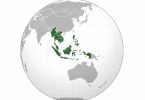VARNA, Bulgaria — For decades the beach holiday of choice for students and budget package tours, Bulgaria still struggles to get higher up the quality ladder.
Bulgaria’s tourism sector accounts for 8.7% of gross domestic product in this former Soviet bloc country. But people in the industry complain about the heavy dependence on all-inclusive mega resorts, an underdeveloped service mentality among employees and a rundown infrastructure.
Agamemnon Zaharopoulos and his wife last month flew to Sofia and rented a car there for what they expected to be a four-hour drive to the beachside town of Varna. It took seven hours after a police detour took them through dirt roads full of potholes. “Cheap is good, but functionality is a must,” the Greek shopkeeper said. “If we come back we will fly.”
The past 10 years have seen plenty of talk about Bulgaria’s value-added tourism centered on hunting, golf, skiing, nature and cultural attractions, but mass tourism is likely to remain the staple because other forms of tourism are hamstrung by a lack of state organization, poor management of cultural sites and a lack of marketing.
“Delays in construction of new highways because of corruption and lack of experience on the part of governments and local municipalities create a substantial misbalance given the capacity of newly built hotels,” said Rumen Draganov, director of the Institute for Analysis and Assessment of Tourism.
Juergen Buettner, a German retiree who lives in Plovdiv, Bulgaria’s second-largest city after the capital, Sofia, complained of his difficulty in finding “anyone who speaks a semblance of English, let alone German, even though they supposedly have degrees in tourism and languages.”
“The country is still not able to take advantage in full of its natural gifts,” he said.
Finding experienced, multilingual staff is still difficult, said Sonya Alexieva, associate professor at the New Bulgarian University and an authority on the country’s tourist industry. Value-added tourism will require even further skills, she said.
“Introducing quality standards for specialized tourism is particularly important as it is going to help Bulgaria diversify its tourism,” Ms. Alexieva said.
Local businesses see diversification as crucial for their livelihoods, complaining of the flood of package tourists into fenced-in compounds.
“The all-inclusive packages are really strangling business because foreign visitors don’t leave their hotel. If my wife, my daughter and I were not all working together and close to 18 hours a day it would be almost impossible to survive. The days of big spending tourists are over,” said Giorgi Thodorov, who owns a cafe in the nearby resort of St. Konstantin and St. Elena.
A total of 2.1 million tourists visited the Eastern European country in the first half of 2010, an increase of 1.9% from the year-earlier period. But nine out of 10 visitors come during the summer, something Prime Minister Boyko Borisov is hoping to change.
Last week, Mr. Borisov ordered his ministers to develop a strategy for developing cultural tourism after archaeologists found what are believed to be relics of John the Baptist in the Black Sea town of Sozopol.
Other signs of action are popping up. In Sofia, long-neglected neoclassical buildings are getting a facelift similar to the one that rejuvenated Prague in the 1990s. Dreary Soviet-era blocks are gradually being replaced by modern buildings of steel and glass. A building that used to house part of the technical university is being transformed into a new museum complex and has been locally dubbed the “Bulgarian Louvre.”
A 290-kilometer, €3 billion ($3.85 billion) high-speed rail line will connect Sofia with Plovdiv and the city of Burgas on the Black Sea. Completion is set for 2012.
Meanwhile, budget airline Ryanair Holdings PLC will begin twice-weekly scheduled flights from London to Plovdiv—one of the world’s oldest continuously inhabited cities and host to some impressive Roman ruins.
Even the skills deficit among Bulgarian tourism workers is expected to improve as a new generation comes into the work force with different perspective and languages.
“More and more of my students are returning home after practice and training abroad, and quality is improving,” said New Bulgarian University’s Ms. Alexieva.






















